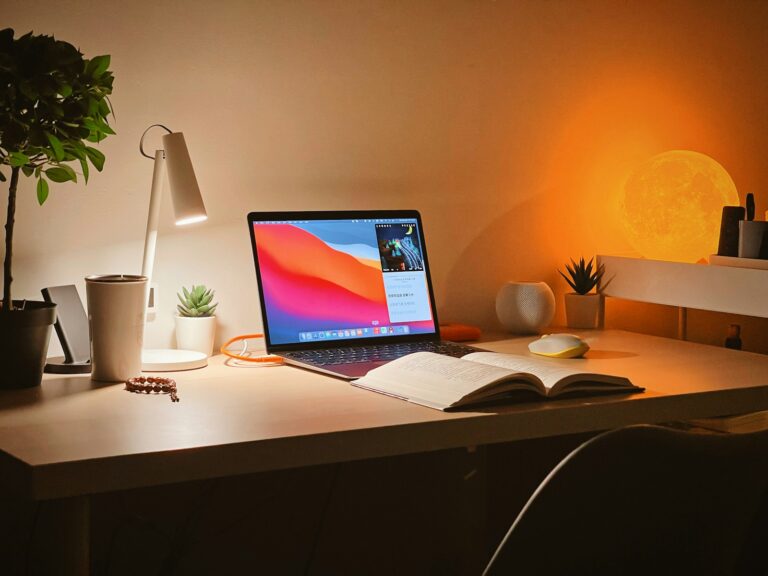How To Do Research In College As An Undergraduate Student
Do you want to do research in college as an undergraduate student? Learn what an undergraduate research assistant does and how to become a research assistant in college.
For college students who want to pursue a Masters Degree, Ph.D., go to law school or medical school, or even do research right out of college, doing research as an undergraduate student is vital.
But what is an undergraduate research assistant? What do they do? And how do you become one?
In today’s blog post, I will be walking you through everything you need to know about being an undergraduate research assistant in college and how to become an undergraduate research assistant.
- Do you want to do research in college as an undergraduate student? Learn what an undergraduate research assistant does and how to become a research assistant in college.
- What you need to know about doing research as an undergraduate student
- How do you become a research student/undergraduate research assistant?
- Final thoughts on how to get research experience in undergrad
- Thank you for reading about how to become an undergraduate research assistant in college.

*This post may contain affiliate links. Purchasing a product or service through an affiliate will earn me a small commission at no additional cost to you. Please read our Disclaimer Policy for more information about the use of affiliate links on this site.
What you need to know about doing research as an undergraduate student
What does it mean to do research in college?
Research and doing research in college is a catch-all term for helping a professor or a group of professors at your college or university answer a specific scientific question to move their field forward by using the scientific method.
What do undergraduate researchers do?
Typically, you will work with your professor(s) and their research team made up of other undergraduate research assistants and graduate research assistants.
The professor you work under will ultimately determine what your role or tasks will be in the research lab.
Every professor is different and has different levels of comfort when it comes to letting undergraduates handle their research.
But in general, you will be assigned tasks based on previous experience in the research lab and the coursework you have completed so far.
Examples of what you could do as an undergraduate research assistant include:
- Collecting journal articles on previous related research
- Helping to design the study or construct survey questions
- Running data analysis on the data collected from study participants
- Assist with writing the research paper to be submitted for publication
- Help your professor with presenting the research at a conference or symposium
Why should you do research in college? And how will research benefit you as a student?
There are numerous benefits to doing research in college, and I encourage you to seek out the opportunity to become an undergraduate research assistant as it will help you tremendously in your future career or academic goals.
Some benefits to doing research in college as a undergrad include:
- Gaining real-world experience that can help you get a job after college
- Improve your writing skills
- Improve your presentation skills
- Improve your communication skills
- Improve your professional skills
- Improve your confidence with numbers and statistics
- Helps bring into full circle what you are learning in class with the real world
- Earn credit hours towards graduation
- Gain a future reference for job applications or graduate school applications
- Potential to be published in an academic journal
- Potential to be a presenter at a conference or symposium
- Meet more students in your college major/networking opportunities
What to expect from undergraduate research
Every research lab is different in how many hours you go to the lab and work, but typically as an undergraduate research assistant, you can expect to do the same amount of work as you would do in a typical lecture class (15-20 hours per week).
Related: The Ultimate Survival Guide to Online College Classes
But if your professor or research team is currently working on a paper for publication or presentation, you can expect to do more work as the deadline approaches.
If your team does present at conferences or symposiums, there may be also times during the semester you have to travel or miss your other classes to present.
However, sometimes you or your research team will not be working towards a presentation or a publication, so your job in the lab will be solely to do whatever tasks are given to you to make the research more viable for presenting and publication.
Here’s a realistic example of what it is like to do research in college as an undergrad:
While working towards my undergraduate degree in Psychology, I did research as an undergraduate twice.
My first research experience was writing a literature review with a professor I had for my Research Methods in Psychology class.
I worked primarily by myself drafting and editing the literature review for publication. And I only met with my research professor once to submitted it to the journal. The rest of the time we corresponded over email.
During my final semester of college, I was part of a different research lab that studied data on babies in neonatal intensive care units.
In this research lab, I had assigned times to meet with my research team and run data analysis to answer a specific research question, but I also was expected to come on my own time to the lab to work.
While part of this research lab, I presented the research I had done with my team twice, once in November 2018, and once in April 2019.
I definitely noticed an uptick of how many hours I spent in the lab closer to presentation time.
Do you get paid as an undergraduate research assistant?
Unfortunately, as an undergraduate research assistant, you do not get paid monetarily. Instead, you get paid in experience and credit hours towards graduation.
On a side note: If you continue on to do research in graduate school, and more so a Ph.D. program, you do get paid as a graduate research assistant with a stipend. But the stipend amount you receive can vary greatly depending on the program and their budget.
Related: How to Apply Into Graduate School
If you are in need of money (and not loan money) to pay for rent, tuition, food, gas, etc. becoming an undergraduate research assistant may not be the best option.
However, we will discuss alternatives to being an undergraduate research assistant later in the post.
When to start undergraduate research?
Honestly, the earlier you can start in a research lab the better.
Labs love keeping students who understand the research and how the lab operates for as long as possible. And it a great opportunity to establish a professional relationship with a professor that can be useful to you after you graduate college.
However, you typically cannot start undergraduate research as a freshman, so the best time to start in a research lab is after you have taken your first research methods course in your major and have also taken a statistics course, which is usually a general education requirement at the university-wide level.
For example, as a psychology major at my university, we were encouraged to seek out research experience after taking our first Research Methods in Psychology course, which is typically taken 2nd year, Fall Semester.
So the earliest I could have done research was 2nd year, Spring Semester.
However, and this is a huge however, your major’s department and the professor you want to do research with may have certain criteria you have to meet in order to do research as an undergraduate student.
Some departments and professors are highly selective and want you to have all research methods classes taken plus a statistics course, passed those classes an A, and a GPA of 3.0 or higher.
You may also like: The Qualities of Successful College Students
Some departments and professors are more lenient and will let you join the lab even after completing your first research method class, granted, you got an A in the class.
Normally, undergraduate research labs will not accept you if you did not do exceptionally well in your research methods classes and statistics course (meaning an A).
If you are interested in becoming an undergraduate research assistant, I highly encourage you to seek out the requirements from the department you want to do research in and make it your mission to meet those goals.
Then as you get closer to completing your research methods class(es) you can start reaching out to professors you want to do research with and learn of their own requirements to do research with them (if they have any).
Alternatives to becoming an undergraduate research assistant
While becoming an undergraduate research assistant is the closest way to do actual research at the undergraduate level beyond writing a research paper for a class, the opportunity sometimes does not fit into every student’s already busy schedule, or your grades at not where they should be to work with a professor.
If this is the case, there are four alternatives (kind of 3 ½ alternatives) to becoming an undergraduate research assistant.
Volunteer as a research assistant
If you have a busy schedule that prevents you from committing the full amount of hours expected of an undergraduate research assistant or have not met the academic criteria to become an undergraduate research assistant see if you can volunteer in a research lab instead.
Many professors are seeking out both volunteer and undergraduate research assistants.
Volunteers, however, tend to not have to commit as many hours in the lab and they DO NOT earn course credit.
However, you will definitely gain research experience, you get the opportunity to connect with a professor outside of the classroom setting, and if you’re a good volunteer, you’ll be a top choice if you apply to become an undergraduate research assistant in the future.
Join your university’s undergraduate student research club
At many colleges and universities, there is a club for students interested in undergraduate research.
These clubs will tend to have a variety of students from different majors and backgrounds, so it is also a great opportunity to meet more research enthusiasts on campus and to network with them.
Some undergraduate research clubs also provide the opportunity to work on research projects with other students in the club which can help you:
- Build the necessary skills to work with a professor
- Add to your overall research experience
- The opportunity to present your research at a conference or symposium.
The club may also bring in guest speakers who will talk about their own research and research opportunities you can pursue after graduating from college or even during college as an intern.
And the club can also help you become an undergraduate research assistant by guiding you through the steps specific to your university that you’ll need to take to connect with a professor who is doing research.
To find out if your college or university has an undergraduate research club, Google your university’s name and the term “undergraduate research club.”
Participate in research studies at your university
If doing actual research is not your thing or you do not have the time or the grades to do research in college, you can find opportunities at your university to be a participant in studies (in-person or online) being conduct by professors on campus.
At my university, all Introduction to Psychology students were required to participate in three studies in order to pass the Introduction to Psychology class, but students who were not in an Introduction to Psychology class could also participate in those research studies.
If you want to find university specific research studies to participate in, Google “participate in research study at <your university name here>.”
Most universities will have a list of open research studies who are in need of participants and you can start combing through the studies you would be interested in participating in.
However, be aware that just because you are interested in participating in a study, it does not mean you will fit the criteria to be an actual participant.
For example, you would not be a good match to participate in a research study on anxiety treatment if you yourself have not been diagnosed with anxiety.
Before you participate in a research study, you’ll need to go through a process, which typically involves filling out a survey, that will determine if you would be a good fit as a participant for the research study.
Become an undergraduate teaching assistant
Although undergraduate teaching assistants do not do research, this is another incredible opportunity to get involved with a professor on campus and develop a deeper connection than a student who simply attends class every Tuesday at 9 AM.
In a nutshell, UTA’s help professors with their class structure and implementation of their curriculum by helping them grade assignments, tutor students, troubleshoot student problems in class and outside of class, proctor exams and quizzes, and more.
I’ve been both a research assistant and teaching assistant during my undergraduate degree and both were eye-opening opportunities. Both opportunities also helped me get into graduate school too. I’d highly encourage you to do one or the other during your time at university if you can.
How do you become a research student/undergraduate research assistant?
Every university and college has a different process students have to go through if they want to become an undergraduate research assistant.
The following guide will give you a general idea with how to become a research assistant, but these steps may not work at every university or college.
It is advised that you do your own investigation on how to do research at your university as an undergraduate student by Googling, emailing or talking to professors, and talking to students on campus who have been or are currently an undergraduate research assistant.
The basic steps you need to take to become an undergraduate research assistant
We will be going over these steps in greater detail throughout the remainder of this blog post, but if you are in a rush or want the abridged version, here is the basic strategy you need to implement to become an undergraduate research assistant:
*This strategy is based on the assumption that you have already taken the required research methods and statistics courses, received a high enough grade in those courses (an A), and have a high enough GPA to become a research assistant. If you have no idea what I am talking about, please go back up and read the, “when to start undergraduate research?” section of this post.
- Research professors in your major’s department and figure out which professor(s) you would like to do research with.
- Make a list of 2-3 professors you’d be willing to do research with as an undergrad and email them to ask if they are accepting new research assistants.
- If they are accepting new research assistants, schedule a meeting with the professor(s) to discuss the opportunity further and allow them to put a face to a name.
- Fill out the undergraduate research assistant application provided by your professor or major’s department and wait to be accepted.
Step 1: Research professors in your major’s department and figure out which professor(s) you would like to do research with.
Unless you have already taken a course from a professor that you know for sure you want to do research with, you’ll need to do some of your own research to determine which professor you want to do research with.
Why do I need to research professors? Can’t I join any research lab?
Well, technically yes, you can join ANY research lab you want, but when it comes to research experience, it is better to do research on a topic you are interested in yourself or a topic you plan to pursue further in graduate school.
When it comes to choosing a research lab to apply to, think long-term. Not short-term.
To research professors you may want to do research with, you will want to first start looking at your major department’s faculty pages and read the bios (biographies) of each professor. The bios can give you a lot of information about:
- If the professor is even accepting undergraduate research assistants
- What the professor’s research is about/areas of interest
- A link to their curriculum vitae
- A list of their journal publications
For example, let’s say you go to The University of North Carolina at Chapel Hill and you a sociology major wanting to do research in college.
You will want to go to the UNC sociology department’s website and then go over to the faculty pages, which on their website is located under the “people” tab. UNC also makes it ridiculously easy to see what professors’ current research areas are with a page on “faculty by field of study.”
However, some department’s websites are not as easy to navigate or to find the answers are you looking for, so you may need to do some digging around the faculty pages or Google the professor’s name and university name to find out more information on them.
Quick Tip #1
As you read the various biographies pay close attention to phrases like:
- Areas of interest
- Research and scholarship focus
- Selected works
- Faculty website
- CV / curriculum vitae
- Research includes
- etc.
When researching. Those will be the key points you’ll want to make a mental note of or write down to reference to later when you get to step 2. I’d also recommend you make a spreadsheet to organize your research on these professors.
While researching professors, if you come across a professor you are genuinely interested in working with, try looking up and reading some of their previously published research. By reading their published research:
- You will have a deeper understanding of their research
- It can give you an idea if they are open to publishing with students from their lab
- You can add the fact that you have read their research in the initial email you send to them in the next step, which will make you look more committed and it’s flattering for the professor.
Step 2: Make a short list of 2-3 professors you want to do research with and email them in regards to if their research lab is open to new lab assistants.
During step 1, you have probably already started narrowing down the professors whose research you are interested in.
If you have more than 3 professors you are interested in working with, narrow it down to just 2-3 professors you’re interested in.
Or if you only have 1 professor you are interested in, I’d advise you to choose at least one more alternative in case the professor you are interested in is not accepting new research assistants at this time.
After you have your shortlist of 2-3 professors, it is time to email them.
This is probably the most nerve-wracking part if you’re an introvert and perfectionist like me, but 99.9% of the time (that’s a made-up statistic by the way), professors LOVE receiving emails and are more than willing to help students achieve their academic goals.
When drafting an email to these professors you want to:
- Keep it professional at all times
- Use a formal greeting and closing
- Personalize it to the professor you are sending it to, no cookie-cutter emails
- Pretend you are writing a cover letter for a job
- Clearly identify yourself
- Name (first and last)
- Student ID name (in case they want to look at your transcript)
- Research methods and/or statistics courses you have taken and the grade you received
- Tentative graduation date
- Keep it short and sweet
- Focus on how your skills and classwork so far will help them in their research–not how they will help you
- Mention an article they published that you *actually* read and the key takeaways you got from it
- Request a meeting with them
- Provide a way for them to contact you (your student email)
Here is an example of a drafted email you can send to your professor(s):
Dear Dr. Professor,
I hope you are having a wonderful day so far. My name is Juliet Meiling, I am a sophomore at ABC University, and I am tentatively graduating in December 2021.
I am majoring in Psychology and minoring in Statistics and I currently have a 3.80 GPA. I have taken both research methods courses for the Psychology major and have taken the statistics course that’s required of all students at ABC university. In all three classes, I received an A.
I am interested in pursuing research as an undergraduate student with you.
From my understanding, you are currently interested in researching how anxiety influences academic grades. I read your published journal article, “Are Students Failing Due to Lack of Knowledge or Is Anxiety to Blame?,” and found it fascinating how the result showed that anxiety had a significant impact on academic grades.
I am interested in topics related to anxiety and plan on going to graduate school for Clinical Psychology. I was wondering if you had a research lab that was open to new undergraduate research assistants. If so, I would love to find out more information about your research lab and schedule a meeting with you.
Please let me know if this is a possibility, as I would love to assist in your research. For reference, I am available on Mondays and Wednesdays from 10 AM to 2 PM. Thank you for your time and I look forward to your response.
Best regards,
Juliet Meiling
jmei123456789@students.abcuniversity.edu
Step 3: If your professor(s) email you back and agree to a meeting (face-to-face or virtual meeting) go to the meeting and treat it as a mini-interview.
If you have received an email back from the professor(s) you have emailed and they have agreed to a meeting, congratulations! You are one step closer to becoming a undergraduate research assistant.
When attending the meeting, whether you already know the professor from a previous class you have taken with them or it is your first time meeting them, treat it like a mini-interview.
When preparing to meet with your professor(s) it is a good idea to create a list of 5-7 questions to ask the professor about their research or how the lab operates. By asking questions you are showing that you are interested and eager about this opportunity.
Some questions you can ask the professor you want to do research with:
- What kind of tasks or duties would I be expected to perform in the research lab as a new research assistant?
- Are there opportunities to present at a conference or be published?
- What have previous research assistants pursued after completing their time in the lab?
- What do you believe is the most challenging part of being part of your research lab?
- What is the most rewarding part of being in your research lab?
- What qualities do you believe makes a good undergraduate research assistant?
- How will I be assessed as a research assistant?
- What is a typical day life for a research assistant in your lab?
The day of your meeting, dress nicely, but not too formal.
A nice pair of jeans and a nice blouse would be perfect. And make sure you arrive 5 minutes early so you can check in with the receptionist and you show that you are serious.
During the meeting, be prepared to restate why you are interested in doing research with the professor.
You don’t have to be a know it all or recite word-for-word about the research your professor does, but be genuinely engaged in what the professor has to say about their research lab and be honest with all your responses to the professor’s questions.
The professor needs to be able to gauge where you would fit best in their lab and how they can teach you to be a better researcher. They don’t want research assistants who already know it all.
They want research assistants that know the basics, who are open-minded, flexible, and who they can mold into better students, researchers, and critical thinkers.
Quick Tip #2
After your meeting with your professor, make sure you send then a thank-you email. Thank them for taking their time to meet with you and restate your interest in doing research with them.
Step 4: Fill out any required applications and wait to be accepted as an undergraduate research assistant.
At the end of your meeting, your professor may go ahead and verbally accept you as a research lab assistant and have you fill out an application to file with the department or direct you to fill out an application to go into an applicant pool with other potential research assistants.
Once you receive the application, fill it out and submit it as soon as possible. You do not want this opportunity to pass you by!
Make sure you complete the application honestly and accurately–so don’t lie about your GPA or the classes you have already taken, that information can be looked up by the department or by the professor very easily.
Sometimes the application will also ask you for what classes you will be taking next semester.
If you do not know yet or are waiting to get accepted into a class, just try to fill it out as best you can.
Professors understand that student’s schedules can change, but they need to have a general idea of when their research assistants can meet in the lab.
After you submit your application, you will have to wait to receive an official email from the department or your professor about being accepted as an undergraduate research assistant and what the next steps will be (i.e., register for a class, the first lab meeting, etc.).
And congratulations on becoming an undergraduate research assistant! What an incredible achievement and honor!
Final thoughts on how to get research experience in undergrad
Becoming an undergraduate research assistant is a fantastic opportunity for all college students looking to become more involved in their major or have the desire to pursue research in graduate school or as a career.
If you want to do research in college, I highly recommend you looking into this opportunity as soon as you can and working towards meeting any requirements at your university or college to qualify to be a research assistant.
I hope this blog post gave you a clear understanding of how to do research in college, what an undergraduate research assistant is, and how to become one yourself.
Related posts to doing research in college
- The Ultimate Survival Guide to Online College Classes
- How to Get Into Graduate School: A Complete Guide to Applying to Graduate School
- Email Etiquette for College Students: How To Write A Professional Email to Your College Professors
- How to Stay Motivated in College: 15 Motivational Tips for College Students
Thank you so much for reading this blog post on how to do research in college and become an undergraduate research assistant. If you found it helpful, please share it on Pinterest. Hover your mouse over any image and click on the Pinterest save button to save it to Pinterest.







